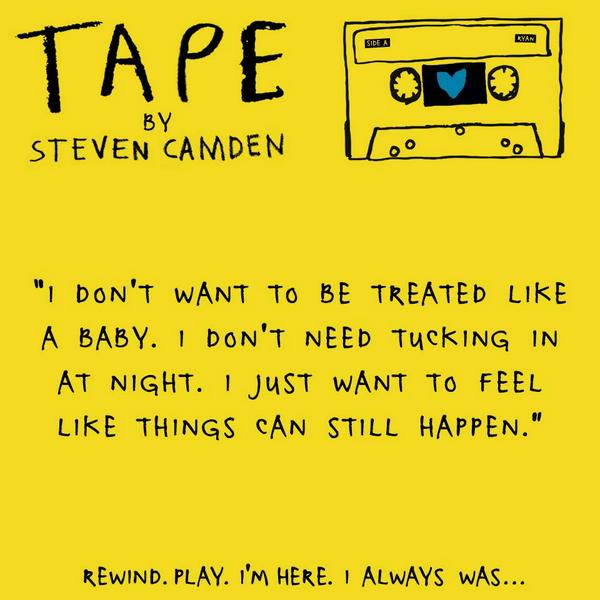 To read or not to read, that is the question! In this case, the answer is easy: you absolutely should pick up DON’T TOUCH, Rachel M. Wilson’s YA debut. Rachel shares with us her thought process behind choosing to bring up themes from Hamlet in a modern day YA book!
Get a glimpse of Caddie’s character before you learn more about how she came to be by watching the DON’T TOUCH book trailer!
To read or not to read, that is the question! In this case, the answer is easy: you absolutely should pick up DON’T TOUCH, Rachel M. Wilson’s YA debut. Rachel shares with us her thought process behind choosing to bring up themes from Hamlet in a modern day YA book!
Get a glimpse of Caddie’s character before you learn more about how she came to be by watching the DON’T TOUCH book trailer!
“Ophelia falls. On purpose or not we don’t know. She falls from the willow branch into the pond and drowns.I could drown in Peter. One touch, skin to skin, and I’d fall.”
In case it’s not already clear, I’m a huge theater nerd. I spent most of my childhood eagerly awaiting the annual class play, and when I had the chance to perform at a professional theater in fifth grade—I got out of school, you guys!—my heart was stamped with a love for theater for life.
So I guess it’s not surprising that my debut novel should revolve around a play, but what does Hamlet have to do with an anxious, modern-day teen in Birmingham, Alabama?
Well, the obvious answer might be that Ophelia has become a symbol in our culture for madness. Caddie worries she’s losing her mind and wonders how far her dark feelings might take her if she can’t get them under control.
Beyond that, Ophelia’s madness is treated in such a romantic way that she’s a compelling character to many young women. I can’t tell you how many of my female theater friends had pictures of Ophelia on their walls in high school and college. Ophelia’s all over the place emotionally, so she’s the dream role for a young actress who wants that dramatic release onstage.
And when I was in high school, Mary Pipher’s nonfiction book, Reviving Ophelia: Saving the Selves of Adolescent Girls, became a bestseller. I had a copy because I was dying to read about other girls with mental health issues, but the book gave me a melancholy feeling. It was full of tragedy and victimization, and it made me think about my attraction to Ophelia in a new way. Why did Ophelia seem so romantic? Was there a part of me that wanted that drama?
As I grew more confident and happy throughout high school, I came to see Ophelia less as a romantically tragic figure and more as plain old tragic. Caddie’s relationship to Ophelia mirrors that in a lot of ways.
But Ophelia isn’t the title character of Hamlet. How Caddie and Peter relate to him was just as important to me in writing Don’t Touch.
Sometimes people call OCD “the doubting disease.” Caddie doesn’t trust herself to take action because any act might have unintended consequences. She doesn’t trust herself to judge which of her fears are valid.
And that fear and doubt is very Hamlet. He spends much of the play paralyzed and unable to act.
When I was first considering Hamlet as the play within the book, I’d already written so many scenes with water imagery and lines about drowning that it was a clear candidate. Then I reread the play and found this line:
“Best safety lies in fear.”
In many ways, Don’t Touch grew into an argument against that idea, an argument against being controlled by fear and doubt.
Hamlet and Ophelia are both in mourning, both broken and uncertain of whether their minds are showing them the truth. I like to believe they had a genuine love for each other, but it’s overwhelmed by distrust and doubt. That’s tragic.
Before she dies, Ophelia sings, “How should I thy true love know from another one?”
If only she and Hamlet could have held onto the sentiment in his letter—his antidote to doubt:
Doubt thou the stars are fire,
Doubt that the sun doth move,
Doubt truth to be a liar,
But never doubt I love.

Step on a crack, break your mother’s back,
Touch another person’s skin, and Dad’s gone for good . . .
Caddie has a history of magical thinking—of playing games in her head to cope with her surroundings—but it’s never been this bad before. When her parents split up,
Don’t touch becomes Caddie’s mantra. Maybe if she keeps from touching another person’s skin, Dad will come home. She knows it doesn’t make sense, but her games have never been logical. Soon, despite Alabama’s humidity, she’s covering every inch of her skin and wearing evening gloves to school.
And that’s where things get tricky. Even though Caddie’s the new girl, it’s hard to pass off her compulsions as artistic quirks. Friends notice things. Her drama class is all about interacting with her scene partners, especially Peter, who’s auditioning for the role of Hamlet. Caddie desperately wants to play Ophelia, but if she does, she’ll have to touch Peter . . . and kiss him. Part of Caddie would love nothing more than to kiss Peter—but the other part isn’t sure she’s brave enough to let herself fall.
–––> Add to your Goodreads shelf!
copyright @EpicReads

